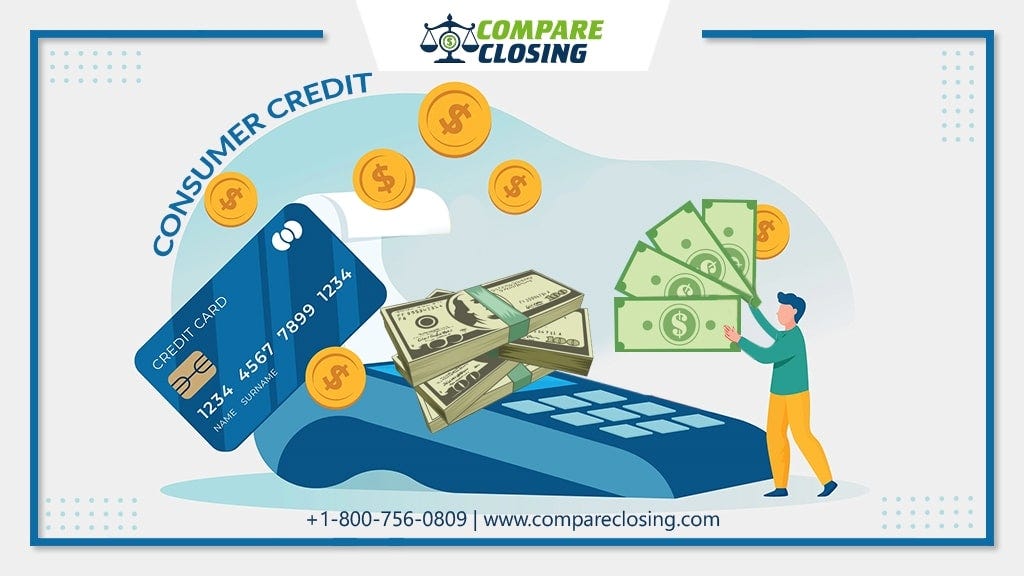
About Consumer Credit
Every individual at some point in life requires some or other way of credit. Whether it is a home, appliances, car, or getting a credit card, an individual may need credit and financial assistance for any of these things.
In the current market, situation credit holds a very significant part of the financial market. In this post we will understand, what is consumer credit in detail.
What Is A Consumer Credit?
Consumer credit is any type of unsecured credit provided to the borrowers. Any form of loan without any collateral or guarantee is known as consumer credit.
The very common types of consumer credits are credit cards, car loans, student loans, and any other personal loans.
What Is The History Of Consumer Credit?
Credit is everywhere. Though it is often pitched as a modern corporate invention, credit is nothing new.
It is built into our very history. People have been lending and selling on credit since the heyday of Babylon in the Roman Empire right through 19th century England when lenders started to compare notes about consumers, who failed to pay their debts.
As time when on, credit systems became more standardized which gave way to credit reporting agencies with an increasingly sophisticated way of tracking consumer credit.
From detailed analog ledgers to comprehensive credit scoring models, the technology has gradually changed the landscape of credit reporting.
Modern credit scoring came about as a more objective way for lenders to distinguish between credit-worthy consumers and those who are less likely to pay their debts on time if at all.
Credit reporting agencies gather and report on the credit and payment history of the consumer.
Using traditional logistic regression a three-digit credit score is calculated based on this history.
These three digits are designed to predict specific consumer behavior, such as the likelihood of a consumer will pay their debts on time or whether the consumer is likely to go bankrupt within two years.
What Are The Types Of Consumer Credit?
There are two types of consumer credit.
I — Revolving Consumer Credit
Revolving consumer credit is the money that you can borrow as needed up to a pre-defined limit.
The payment on revolving credit is only required if you use any of the funds available to you.
If you are unable to make the complete payment on the date on which the payment is due, you might be charged with additional interest on the amount owed depending on the type of revolving credit you have.
Line of credits and credit cards are two of the most commonly used revolving credits in any given financial market.
Revolving credits has its advantages, for one thing, you aren’t required to borrow money when using a revolving line of credit.
That means you can build credit without risking anything or owing anyone.
For example, even if you are not making any purchases through your credit card, you will still get reported to the credit bureaus as being in good standing each month which would lead to credit improvement in time.
You will build credit faster if you use a moderate amount of your credit limit each month and always pay the balance in full.
II — Installment Consumer Credit:
An installment loan is when you borrow a set amount of money and agree to pay the complete amount back in a series of monthly payments.
The most common types of installment consumer credit loans are car loans, student loans, and any other personal loans.
In an installment consumer credit, the loan amount is given to the borrower in one lump sum.
Once the loan is disbursed, the borrower starts the monthly payments according to the set tenure paying every month with the interest rate agreed according to the loan contract.
Conclusion
Before you consider any loan please ensure a few things like interest rate, frequency of payments, how soon you would get the loan, penalties, fees, restrictions, and any other relevant details.
Make sure that you ask a lot of questions before getting a loan. To get any type of loan you might have to go through a credit check and every lender is different when it comes to providing credit.
Apart from your credit history and score, there might be some other qualifications required to obtain credit, age, income, location, identification proof, and accounts to receive the money and to repay the loan.
https://www.compareclosing.com/blog/what-is-consumer-credit/
Comments
Post a Comment